Govt accelerates spectrum auction
Reconstitutes committee tasked with releasing spectrum for mobile broadband
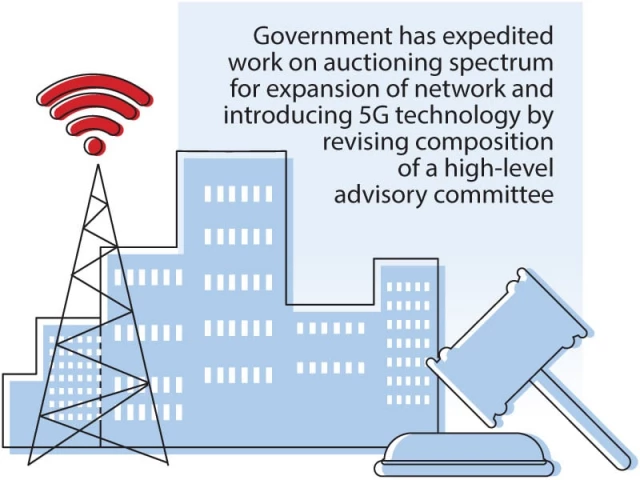
The government has accelerated work on spectrum auction for expanding the telecommunication network and introducing 5G technology by changing the composition of a high-level advisory committee tasked with overseeing the auction.
The Ministry of Information Technology and Telecommunication briefed the Economic Coordination Committee (ECC) of the cabinet, in a recent meeting, that optimum utilisation of the available frequency spectrum was critical for expansion of the telecom network, improvement in tele-density and quality of mobile broadband services, including facilitating the 5G road map.
It may be noted that the current use of International Mobile Telecommunications (IMT) frequency spectrum for commercial cellular services in the country in 700 MHz, 2,300 MHz, 2,600 MHz and 3,500 MHz bands is significantly lower vis-a-vis global practices.
The IT and Telecom Division told the cabinet committee that spectrum auctions for Next Generation Mobile Services (NGMS) had been conducted in 2014, 2016, 2017 and 2021 under the policy directives issued by the federal government. Consequently, paired spectrum in the 1,800/2,100 MHz band, 1,800 MHz band and 850 MHz band was auctioned and assigned to cellular mobile operators.
The division stressed that it had since been decided that the auction for the release of more spectrum would be held under the oversight of an advisory committee constituted by the prime minister/federal cabinet.
It informed the committee that after approval of the ECC and the cabinet, the advisory committee for the release of unsold IMT spectrum was notified on November 6, 2023 and was subsequently revised on June 28, 2024.
It shared that the Ministry of Industries and Production had approached the IT and telecom ministry with the request to include the special assistant to prime minister (SAPM) on industries in the advisory committee.
In order to avoid any such issue in future, the IT division proposed that the composition of the committee might be revised by including the SAPM and the minister of state along with federal ministers of IT and telecom, industries and production and law and justice.
The advisory committee comprised the federal minister for finance and revenue (chairman), federal minister/minister of state/SAPM on IT and telecom, federal minister/minister of state/SAPM on industries and production, federal minister/minister of state/SAPM on law and justice, secretary Finance Division, secretary IT and Telecom Division, secretary Law and Justice Division, chairman Pakistan Telecommunication Authority, executive director Frequency Allocation Board, director general (tech) ISI (co-opted member of the committee), member (telecom) Ministry of IT and Telecom (secretary), and any other member that may be co-opted with permission of the chair.
The ECC was apprised by the IT division regarding the revision in composition of the advisory committee. The ECC considered a summary submitted by the Ministry of IT and Telecom titled "Revision in Composition of Advisory Committee on Release of IMT Spectrum for Improvement of Next Generation Mobile Broadband Services in Pakistan" and approved the proposal.
Last week, the GSMA noted that despite Pakistan's digital ambitions and talent, the country risked falling behind in the region if urgent telecom policy reforms were not introduced. Without reform, investors might leave and citizens would suffer, it warned.
At the GSMA Digital Nation Summit 2025, GSMA Head of Asia-Pacific Julian Gorman identified three key obstacles to Pakistan's digital growth: high taxes, limited spectrum and policy inconsistencies.
Speaking to media after the summit, Gorman said reducing telecom taxation was possible, even under International Monetary Fund (IMF) programmes, citing Argentina as an example.
"If urgent reforms are not implemented, investors will move to other countries," he said. "Freelancers in Pakistan may also lose their livelihoods if they don't have adequate internet and electricity."
He also said the demand for spectrum had grown and urged the government to close the gap in spectrum usage and availability. Gorman expressed concern over Pakistan's slow pace of digitalisation, saying "we are reaching a critical point as artificial intelligence and other technologies are evolving rapidly across the world".

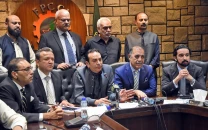



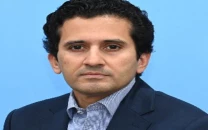






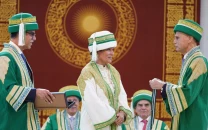

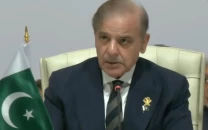








COMMENTS
Comments are moderated and generally will be posted if they are on-topic and not abusive.
For more information, please see our Comments FAQ